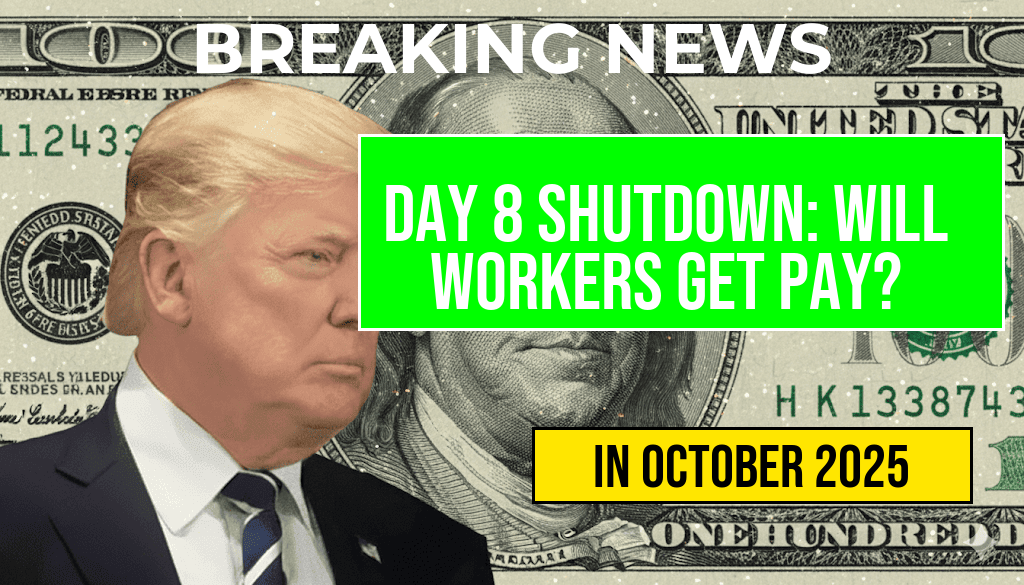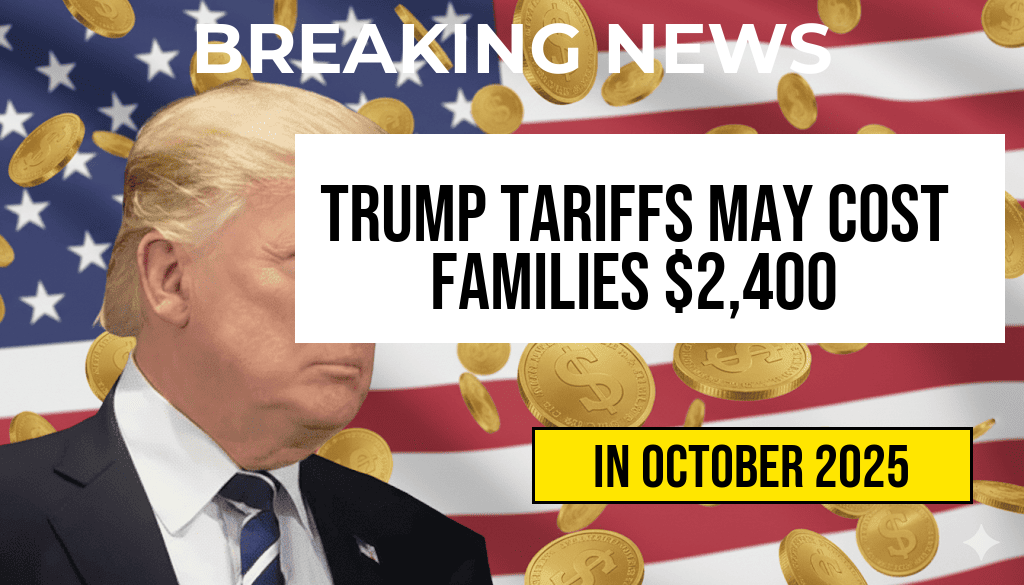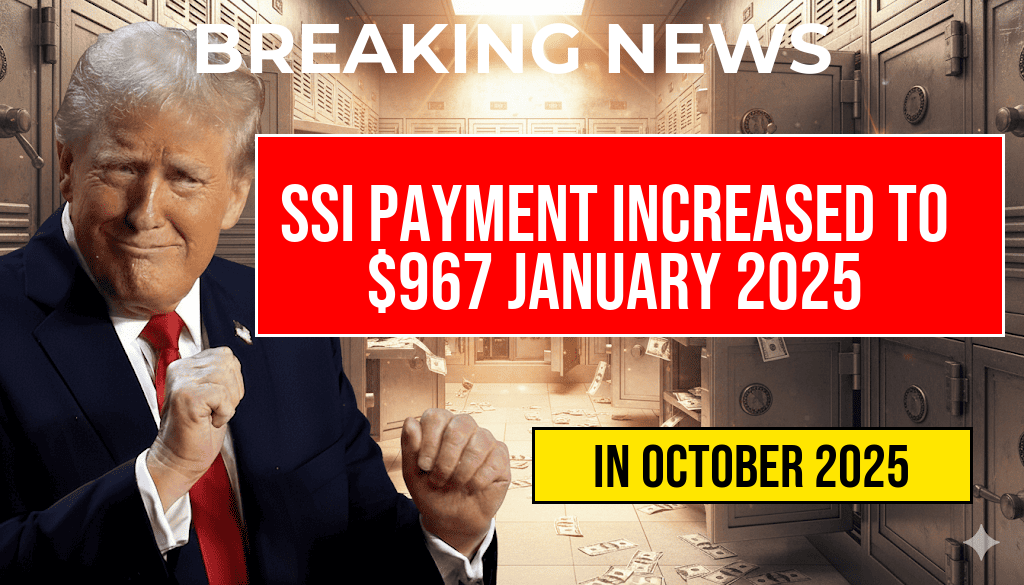As the government shutdown enters its eighth day, thousands of federal workers remain in limbo, uncertain whether they will receive their full paychecks or face financial hardship. With congressional negotiators struggling to reach a resolution, the fate of federal employees hangs in the balance. While some agencies have halted operations entirely, others are operating with limited staff, leaving many workers anxious about their immediate financial stability. The shutdown has also disrupted essential services, from national parks to passport processing, raising concerns among the public and lawmakers alike. As discussions continue behind closed doors, federal workers and their families are awaiting definitive answers on whether they will be compensated for their work during this period or face unpaid leave.
Understanding the Impact on Federal Employees
Full Pay or No Pay? The Current Uncertainty
Federal workers are caught between legislative gridlock and urgent negotiations. Typically, during a government shutdown, non-essential federal employees are furloughed without pay, while essential personnel are required to work but may not receive paychecks until funding is restored. Historically, Congress has enacted legislation to ensure back pay for affected workers once funding resumes, but the process often leads to financial strain for many employees in the short term. Currently, there is no official guarantee that federal workers will receive their full paychecks for the days they are working during this shutdown, which has heightened concerns over wage delays and economic hardship.
Legal and Political Factors
The legality of withholding pay during a shutdown hinges on existing legislation and executive orders. The Federal Employees’ Pay Act generally stipulates that federal workers should be paid once funding is restored. However, during the shutdown, appropriations bills are not passed, leading to a temporary lapse in funding. The political impasse, primarily over budget disagreements, has deferred negotiations on funding bills, prolonging the uncertainty for federal staff.
Official Statements and Responses
Government Agencies and Congressional Leaders
| Source | Position |
|---|---|
| Office of Personnel Management | Reiterates that federal employees will typically receive back pay once funding is restored but emphasizes that pay delays are possible during the shutdown period. |
| Congressional Leaders | Varying statements; some officials urge immediate resolution to ensure pay, while others highlight ongoing budget negotiations as the priority. |
Federal Workers’ Perspectives
Many federal employees have voiced concerns via social media and union statements, describing stress over unpaid bills and mounting expenses. Union representatives have called for urgent legislative action to ensure timely pay, emphasizing the hardship faced by frontline workers and administrative staff alike.
Potential Outcomes and Legislative Developments
Paths Toward Resolution
- Funding Bill Passage: The most immediate route involves Congress passing a stopgap measure or full appropriations bill, reopening agencies and guaranteeing pay.
- Back Pay Legislation: Historically, Congress has authorized back pay once the shutdown ends, but delays can cause financial strain for workers in the interim.
- Executive Actions: The President or agencies could explore measures to ensure partial pay or emergency funds, although such steps are limited under current laws.
Timing and Political Will
Legislative negotiations are ongoing, with some lawmakers advocating for immediate measures to fund essential services and compensate workers, while others prioritize broader budget reforms. The upcoming deadlines for funding bills or potential shutdown extensions could influence the trajectory of negotiations and the likelihood of federal workers receiving full pay without delay.
Economic and Social Implications
The continued shutdown affects not only federal employees but also local economies dependent on government contracts and tourism. National parks remain partially closed, and services like passport processing are delayed, impacting businesses and travelers. The broader economic outlook reflects growing concerns over prolonged fiscal impasses, prompting calls for bipartisan cooperation to prevent further disruptions.
Resources for Federal Workers
- Financial Assistance: Federal Employee Education & Assistance Fund offers resources and support during shutdown periods.
- Legal Advice: Unions and legal organizations provide guidance on rights and options for affected workers.
- Official Updates: The Office of Personnel Management offers regular updates on pay and agency operations.
As the nation watches the negotiations unfold, federal workers and their families remain in limbo, awaiting clarity on whether this eighth day will mark the end of uncertainty or extend the financial strain. The resolution will not only impact payroll but also serve as a test of legislative cooperation during a period of national fiscal challenge.
Frequently Asked Questions
What is the current status of the government shutdown on Day 8?
The government shutdown has now entered its eighth day, causing disruptions across various federal agencies and services. The situation remains unresolved as lawmakers continue negotiations to restore funding.
Will federal workers receive their full pay during the shutdown?
Many federal workers are concerned about their full pay. Typically, during shutdowns, essential employees may receive retroactive pay once funding is restored, but non-essential staff often face payment delays.
Are there any financial support options available for affected federal employees?
Some federal employees may qualify for emergency assistance or loans through various programs. It is advisable for affected workers to check with their agency’s HR department for specific resources and support options.
How might the shutdown impact public services and benefits?
The shutdown can lead to service disruptions in areas such as passport processing, federal grants, and public health programs. Citizens may experience delays or reduced access to certain government services until funding is restored.
What are the prospects for ending the government shutdown?
The resolution depends on Congressional negotiations and government leadership. While talks are ongoing, no definitive end date has been announced, leaving many to worry about continued uncertainty.










